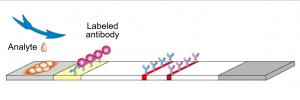I’m going to write of the sorrow and the horror, which the half of the human beings has suffered.
I thought it is what I couldn’t perceive in the past. In fact, it is what I didn’t try to perceive.
They have always been exposed to the oppression, from the past and through the present, constantly. We could easily watch the news, which sometimes reports their pain. The horror glancing at them is also close to us. One of the worse cases happened in the Hongik University. Moreover, I have often seen that the unbalanced world, the patriarchy1, was even suppressing one of them in my house.
Being my colleague, my friend, and one of my family, they are called women. I couldn’t just look on them like a bystander2. Therefore, I tried to hear their oppression and discrimination and to perceive it. That’s why I chose the novel written by Cho Namjoo, Kim Ji-young: Born in 1982.
Why is it Kim Ji-young: Born in 1982?
In the book, the writer expresses the oppression which Korean women have faced through the life of Kim Ji-young.
The novel is described from the male therapist’s point of view, who is treating Ji-young’s mental disorder. Ji-young said all of her life story to the therapist, which she has seen and has heard and has felt as a female from the 1980s to 2016. Her story brought a new realization to the therapist as a narrator and to me as a reader.
Following what the therapist said:
“Looking into the scenes of Ji-young’s life, I realized that there is a world that I never knew about.”
From now on, I’m going to show you the stories of her life and to describe what that the realization was.
- “Taxis are more dangerous to women.”
The sentence above is what Ji-young heard from a woman. The woman’s sentence meant that since a taxi driver usually takes only a few passengers so that only two to three people are in the taxi, when violence happens in there, a victim could hardly hope for the rescue. Then, women who have often faced violence against them, would shiver with fear in a kind of that area. This paragraph shows us the reality, where women are worrying that they could be a victim of violence anywhere. Women have been exposed to many different crimes, regardless of where they happen, because there is no special area in which violence doesn’t only happen. Recently, female victims have disclosed the sexual violence which they have experienced. Poets, prosecutors, lawmakers, actors, and the others, and even the friends who are studying with us, said they were sexually assaulted3 at their work place. Kim Ji-young is one of them, too. When she became a middle school student, a university student, and even a worker, she shivered with fear, as well.
- “If I have a baby. I might lose today’s youth, health, career, and social networks like colleagues and friends, and my plans and future. But honey, what will you lose?”
- “Why don’t you stop saying to help? You sometimes said to help with the housework or help to take care of children. But, isn’t it your house? Aren’t they your children? Why do you say as it is not your business?”
The two sentences above are what Ji-young said to her future husband, before they get married.
This paragraph shows us that the patriarchal society forces women and men to follow the oppressive social roles after they get married. As the patriarchal system says, females should devote themselves to the care of their children and the housework. Also, males should work to earn the family’s financial support. Therefore, the father and mother, both of them, are victims of the patriarchy. However, as you can find that in the second quotation, the mother must give up more than the father as they have grown up in the patriarchal system. Her youth’s dreams and labor were hurt by the patriarchal system, no matter what she wanted.
Finally, Kim Ji-young: Born in 1982 is not a fictional story and is not someone else’s story. Kim Ji-young in the book was your mother in the past and may be your daughter in the future. We should perceive the contents of the book as a certain reality which we are living in. Also, we should correct the sexist4 awareness to stop following the violence and the pain, which stem from the patriarchal system.
*the patriarchy1 (-al system): Feminist theory defines patriarchy as an unjust social system that enforces gender roles and is oppressive to both men and women. It often includes any social, political, or economic mechanism that evokes male dominance over women.
*bystander2: A nonparticipating observer; a spectator or an onlooker.
*sexual assault3: Generally, sexual assault is defined as unwanted sexual contact.
*sexist4: Relating to the prejudice, stereotyping, or discrimination, typically against women, on the basis of sex.
Park Jiwon hongiktidings@naver.com
<저작권자 © 홍익대영자신문사, 무단 전재 및 재배포 금지>





